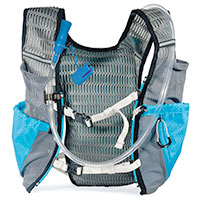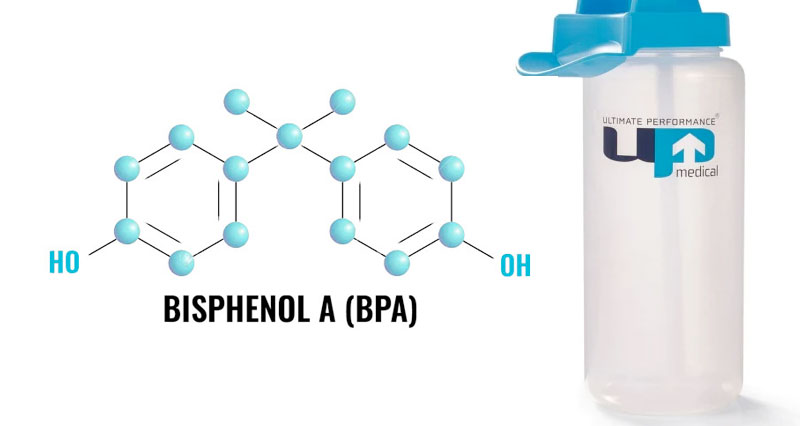Sports supplements are commonly used by athletes to enhance performance. Some are more often used by power and strength athletes such as creatine, protein supplements, and amino acids and others tend to benefit endurance athletes such as glycogen loading, caffeine, and sodium bicarbonate.
Effectiveness of a supplement depends on an athlete’s diet, nutritional deficiencies, the type of supplement, and individual differences. It is important an athlete addresses their diet first, however supplements can have a small benefit on performance, approximately 1 to 10 %. Due to time constraints, expense, training demands, and ease, athletes commonly look to supplements to enhance performance and/or recovery. This article will look at the different supplements used by both power and endurance athletes.
The following are likely to be more useful to power athletes
Creatine
Creatine is a supplement commonly used by power and strength athletes such as weightlifters or sprinters. Creatine is a naturally occurring substance, most commonly found in red meat such as beef or oily fish such as salmon. Creatine has a positive impact on anaerobic activity, strength, power output, and recovery.
Our bodies’ usable form of energy is adenosine triphosphate (ATP). We break down fats and carbohydrates to form ATP (energy) during both aerobic and anaerobic activity. Whilst working at ‘all-out’ intensity, such as lifting heavy weights or sprinting, our body uses an energy pathway known as the ATP-PC system. During the ATP-PC system, creatine phosphate is broken down by the enzyme, creatine kinase to create energy very quickly.
Creatine provides energy during the initial phases of intense activity or short bursts of ‘all-out’ activity. However, the body has limited stores of creatine phosphate and therefore supplies rapidly deplete, reducing our ability to create energy using creatine. This results in fatigue and a decrease in exercise intensity, in real terms this could mean slowing down whilst sprinting. Creatine phosphate stores can be replenished when sufficient energy is available, but this takes time.
Creatine monohydrate is the most effective form for supplementing creatine. When taking creatine, a dosage of 5-6 grams per day for 4 weeks is commonly taken, this will result in an increase of creatine stores within the muscle cell. This saturation phase should be followed by a maintenance dosage of 3 g. Many users choose to cycle creatine supplementation.
Benefits of creatine supplementation
Creatine supplementation increases our body’s creatine stores, improving our ability to work at high intensity for longer, for example, sprinting for a longer period of time. Creatine stores would replenish quicker during exercise, improving recovery, enabling an athlete to perform more repetitions and sets of an exercise at high intensity during a training session, thus improving strength, power and promoting recovery.
Creatine is stored alongside water, promoting muscle hydration, this is useful for muscle building, recovery, and avoiding cramps. As creatine is stored alongside water, it can lead to an increase in size and weight gain (water), therefore weight categorised athletes would be aware.
Side effects of creatine supplementation
There is little evidence to suggest creatine would be useful for endurance athletes. Some people have reported they suffer from stomach cramps. Also weight gain can occur due to water retention and although not proven, creatine has been accused of causing kidney problems when consumed above recommended doses.
Protein supplements
Protein supplements are commonly used by strength athletes such as weightlifters or rugby players, although they can be useful for all types of athlete. The main role of protein in the diet is for muscle growth and repair, supplementation is commonly used for this purpose. During exercise, training causes damage to muscles and connective tissue, protein helps promote the growth and repair of these tissues.
Benefits of protein supplementations
Protein enhances muscle growth, important for strength athletes such as rugby players, who need high levels of strength and size. Protein enhances muscle recovery, improving recovery times and increasing the quality of subsequent training sessions. For athletes trying to maintain muscle or increase muscle mass and size, protein supplements can be useful in providing extra calories and ensuring protein requirements are met. Protein can be useful when an athlete is reducing calories to cut weight for a weight-categorised sport as maintenance of a higher protein diet helps prevent muscle loss.
Side effects of protein supplements
Some people have reported increased bowel movements, nausea, thirst, bloating, and cramps.
One should not rely on protein supplements as their main source of protein as it contains fewer nutrients than whole foods.
BCAA’s
Protein is broken down into amino acids, some amino acids are essential, they must be consumed in the diet, whilst others are non-essential, they can be formed in the body. The branch chain amino acids, BCAA’s, are essential amino acids and consist of leucine, isoleucine, and valine, these amino acids are most effective for muscle building.
An athlete may supplement with BCAA’s to promote muscle building and recovery, BCAA’s also help prevent muscle breakdown so may be taken prior to training, particularly if training having not eaten for several hours.
Benefits of BCAA’s
Promotes muscle growth and repair
Reduces fatigue
Help prevent muscle breakdown
Side effects of BCAA’s
Can impact on blood glucose
The following are more predominantly used by endurance athletes:
Caffeine
Caffeine is a naturally occurring substance, commonly found in coffee, tea, chocolate, and many carbonated and energy drinks. It is the most commonly used supplement in the world. Up until 2004 caffeine was on the prohibited substances list, with athletes being limited to a urine level below 12 micrograms per mililitre. This is equivalent to 6-8 cups of coffee (600-800mg). Performance-enhancing effects have since been proven at a much lower intake, between 2-4 cups of coffee (200-400mg).
Benefits of caffeine
Caffeine is a stimulant which blocks the actions of receptors that normally make you feel drowsy, in sport this can improve mental alertness, decision making and concentration along with reducing mental fatigue. For example, during a tennis match, a player’s focus may be improved during the final set, improving their shot selection.
Caffeine increases the use of fats as energy, this is beneficial for endurance athletes such as long-distance cyclists, using fat spares stored glycogen (carbohydrates) delaying fatigue and time to exhaustion.
Caffeine is a mild diuretic, which may be useful in weight categorised sports, for example, a weigh-in before a boxing match.
Side effects of caffeine
As caffeine is a stimulant, it can lead to poor sleeping patterns, restlessness, anxiety or irritability. This can lead to mental fatigue. An athlete may do more than they usually would in training, which could potentially be damaging.
Abdominal pain, diarrhoea, dehydration, high blood pressure, and headaches have also been linked to caffeine.
Glycogen loading
What is glycogen loading?
Five to six days before a competition an athlete will eat a high protein and low carbohydrate diet, whilst training at a high intensity for three days. This depletes carbohydrate stores.
Three days prior to competition, the athlete will eat a high carbohydrate diet and complete light training. As the bodies glycogen stores are depleted, the body will compensate by storing as much glycogen as possible to prevent further depletion, optimising glycogen stores ahead of competition.
- 6 days prior – Low carb – High training intensity
- 5 days prior – Low carb – High training intensity
- 4 days prior – Low carb – Mod/High training intensity
- 3 days prior – High carb – Low training intensity
- 2 days prior – High carb – Low training intensity
- 1 day prior – High carb – Low training intensity
Benefits of glycogen loading
Increased stores of glycogen enhance endurance capacity
Increased stores of glycogen allows an athlete to last longer without tiring.
Side effects of glycogen loading
Carbohydrates are stored along with water, consuming high levels of carbohydrate can lead to water retention and bloating.
Due to water retention, increases in weight can occur.
Irritability during the depletion phase when exercising hard and consuming low amounts of carbohydrates.
Muscle stiffness, fatigue, and tiredness may occur during the depletion phase. Replenishing glycogen stores within the first hour of exercise can enhance performance and recovery.
Sodium bicarbonate
When our bodies demand for oxygen exceeds the available supply of oxygen, our body must work anaerobically. Anaerobic exercise results in the formation of by-products including lactic acid and hydrogen ions. These by-products increase the acidity within the muscles, causing pain and fatigue. Sodium bicarbonate is an alkaline, which can buffer the impact of lactic acid and hydrogen ions, allowing the performer to work for longer at higher intensities without fatigue.
Evidence suggests ‘soda loading’ benefits events conducted at near maximum intensity for a duration of 1-7 minutes such as 400 m race, rowing, 100-400 m swim or multiple anaerobic burst activities such as football, rugby, hockey, and netball.
Dosage of approximately 90–135 mg per pound of bodyweight produces benefits, and it should be taken 60–90 minutes before exercise. Taking sodium bicarbonate so close to exercise can cause stomach problems for some people. If this is the case for you, consider starting with a smaller dose, such as 45–68 mg/lbs.
Benefits of sodium bicarbonate
- Reduces acidity in the muscles, delaying fatigue
- Bicarbonate increases the buffering capacity of the blood and neutralises the negative effect of lactic acid and hydrogen ions (maintain blood Ph). Whilst running a 400 m race, our bodies are forced to work anaerobically for an extended period of time, leading to a build-up of lactic acid and hydrogen ions, which could cause fatigue on the final straight.
- Increases the time in which an athlete can work at high intensities.
Side effects of sodium bicarbonate
Some people have reported stomach cramps and diarrhea
Citrulline malate
Citrulline malate speeds up the ammonia recycling process associated with fatigue, meaning you can process metabolites (by-products of metabolism) faster, reducing the speed in which they accumulate.
Usually, an athlete takes 6-8 grams approximately an hour before a workout or competition.
Benefits of citrulline malate
Citrulline malate delays fatigue by processing metabolites quicker.
Promotes the vasodilation (opening) of blood vessels, increasing oxygen and nutrient delivery to the working muscles, delaying fatigue.
Due to an increase in oxygen delivery to the muscles, strength athletes may feel the “pump” and an increased delivery of nutrients to the muscles promotes muscle building.
Reduces fatigue and improves endurance and recovery in aerobic and anaerobic activity.
Side effects of citrulline malate
Some people have reported gastrointestinal distress.
Exam-style questions
1- Discuss the potential benefits and side effects to an athlete taking caffeine supplements (4 marks)
Answers (1 mark for mentioning any of the following):
- Is a stimulant so increases alertness, decision making, improve reaction time
- Improves mental alertness
- Increases the use of fats as energy, delaying fatigue
- Improves endurance performance
- Is a mild diuretic, could help in weight categorised sports
- Caffeine side effects include dehydration/insomnia/muscle cramps/vomiting/irregular heartbeat/diarrhoea






